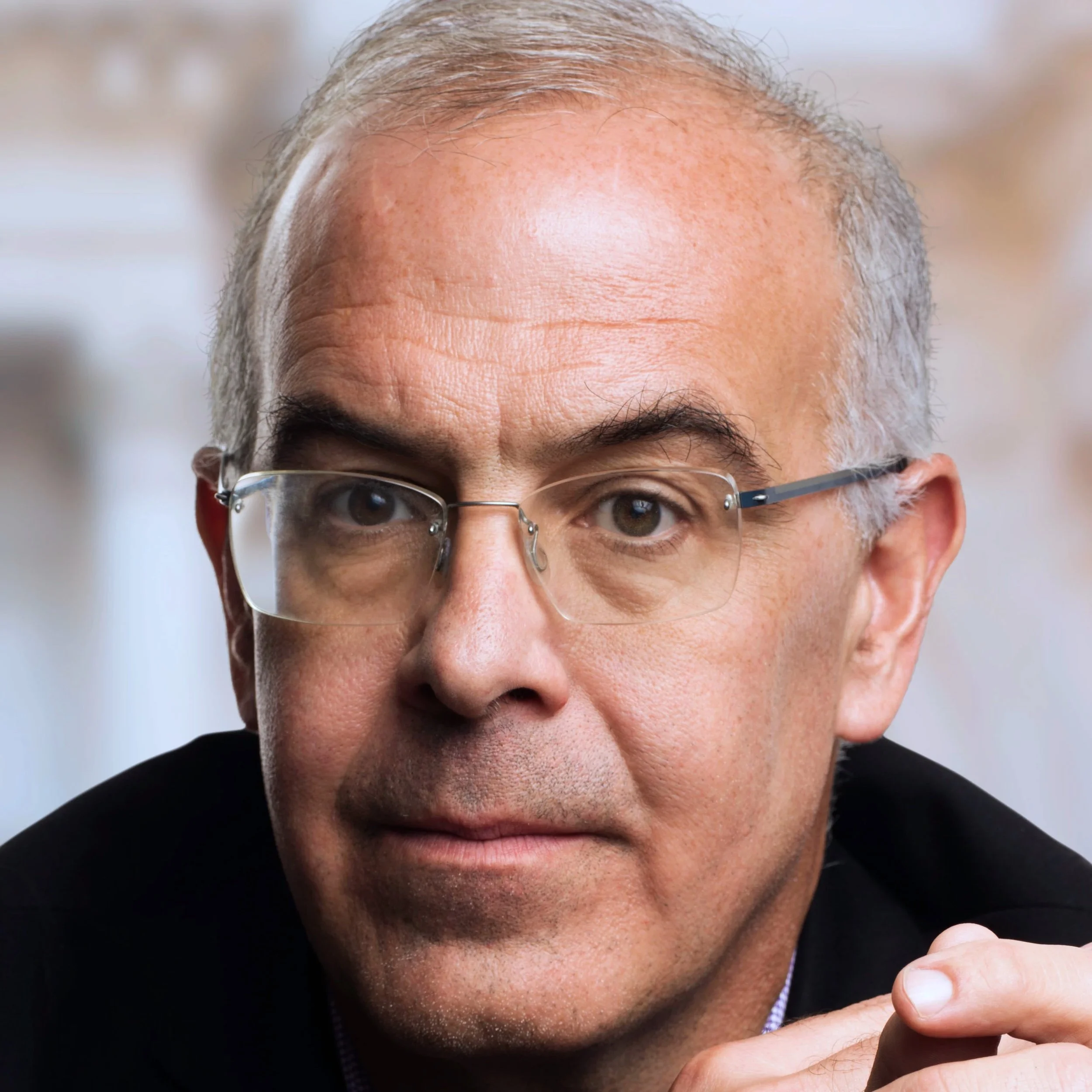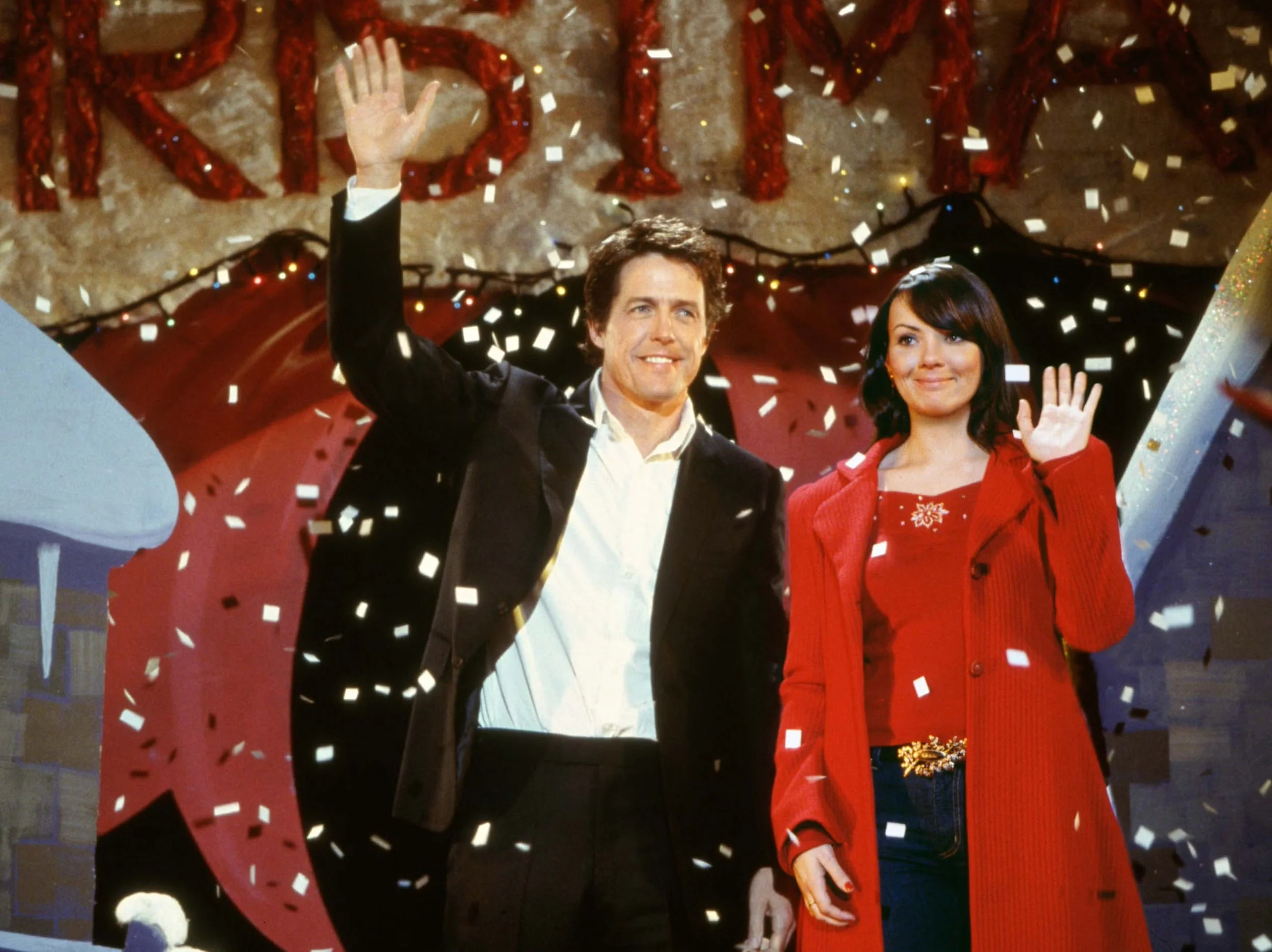Ahhh…Brahms
Once upon a time, I owned some classical recordings—the big round ones that came in a cardboard sleeve. I kept them on a nice board-and-cinder-block shelf in my dorm room. There was some Mozart, some Copland, some Steve Reich. And there was this recording of Brahms chamber music—the Clarinet Quintet and the Clarinet Trio.
I’m not sure how I happened on it. Perhaps the late Obie Yadgar had played it on WFMR—Milwaukee’s great classical station—and hearing it prompted me to pick it up on a visit to Chicago’s Rose Records. But once I had it, it became a de facto desert island disc. Or rather—since desert islands were rare in northern Indiana—an “I-failed-an-exam” disc, a “What-am-I-doing-with-my-life” disc, or just music to play while watching the falling leaves through my window.
Later in my life I learned more about this music. As Frank Almond explained at last Tuesday’s Frankly Music concert, Brahms was ready to retire from composing in 1890, when he was 57 years old. “I have worked enough,” he reportedly said, “let the young folks take over.” After all, the joy Brahms found in creating music was hard won. He was anxious, driven to an almost debilitating perfectionism that was nurtured by the often repeated claim that he was “the next Beethoven.”
Todd Levy
But then Brahms met—and heard—the clarinetist Richard Mühlfeld. He was so taken with his performances of clarinet concertos of Mozart and others that he decided to write some pieces of chamber music for him. The Clarinet Quintet in b minor was one of them.
Listening to Todd Levy play the quintet on Tuesday (joined by the string quartet of Frank Almond, Alex Ayers, Anthony Devroye, and Adrien Zitoun), you could hear what drew Brahms to the instrument in his later years. The first movement begins with simple, sublime melody in the strings then echoed gently by the clarinet. That theme is then tossed around between the five instruments until the music sheds introspective mood and grows more restless.
When Levy plays a sustained note, it doesn’t merely sound, it blooms. And in the Clarinet Quintet those rapturous notes are music’s emotional core. Everyone hears music differently, but what I heard here in this “autumnal” Brahms—as it is often described—was the deep contemplation of a life in transition. Moving back and forth between the luminous and agitated, wistful and restless, the piece revealed a creative mind at a crossroads.
The rest of the program offered a terrific preamble to the quintet, serving up pieces written in Brahms’ youth, including an early scherzo (played by Almond and pianist Jeannie Yu) written when he was only 19 years old. Almond and Yu collaborated beautifully again on a mid-career piece, the Sonata No. 2 in A, Op. 100. Levy showed off his gorgeous tone in three short songs arranged for clarinet. And he showed off his “Eddie Van Halen” chops (as Almond put it) with “Fiori Rossiniani,” a showpiece written by the 19th century “Paganini" of the clarinet,” Ernesto Cavallini.
Retiring Minds
Speaking of lives in transition, New York Times columnist David Brooks has some thoughts for those who are willing to “let the young folks take over.”
In his recent essay for The Atlantic, ”The New Old Age,” he describes several new academic programs for the well-heeled retiree, those who are “trying to figure out what do do with the rest of their lives.”
There are programs now at Stanford, The University of Chicago and Notre Dame that offer a full-year, residential program for those restless, older souls. Since it also involves paying a full tuition and board, the programs are available only to the “ridiculously privileged” (Brooks’ words), and they are serious business. Brooks tells of an instructor in one program discovering a 65-year-old “student” lying on the floor, hyperventilating, in a total panic at the prospect of leaving his old life behind. I suppose, for some, that’s an understandable reaction to the opening salvo issued by the program’s director. "Throw away your resume. "That's no longer who you are. That's not going to help you."
I've been around retired people for a while. Recently, even, I've been living with one. They all approach it differently. A lawyer I know is getting an education degree so he can teach high school English. Another friend has shifted her casual pastime of painting into high gear, exhibiting in group shows and selling her work. Many others have filled their life with volunteering, taking classes, shifting sideline hobbies into near-full-time avocations. My father retired from his day job at the ripe old age of 55, but kept his sideline floral arranging business going for a few years. He became a Florida snow-bird and relished his role as caretaker of my sister, who had Down syndrome, until she died.
David Brooks
"Retirement" for me was more a winding road than a jump off a cliff. I've had some years of full-time work with the requisite salary and benefits, and others involving a hodgepodge of free-lance work, teaching, and doing the stay-at-home dad thing. As the journalism business changed and free-lance work became harder to find, my paid work hours tapered off year by year. Today, at 64, I occasionally get a call for a magazine assignment, but am generally in the "retired" zone.
I’m not one of the captains of industry that will populate these “Distinguished Career Initiatives,” but I am lucky enough to be able to slow down a bit and pursue some personal projects (like the one you’re reading right now). Brooks’ essay attempts more than a chronicle of the power brokers that find themselves at sea when it’s time to retire the briefcase.
“Since the dawn of the modern age,” Brooks writes, “people have been complaining about the hollowness of the rat race, but nobody ever does anything about it.” In the end, he wonders if the next generations will effect that change with a decidedly different work ethic. But until then, it’s good to keep in mind an idea from psychologist Carl Jung”:
“We cannot live the afternoon of life according to the programme of life’s morning,” Carl Jung observed. “For what was great in the morning will be little at evening, and what in the morning was true will at evening have become a lie.”
Actually…not.
Love, Actually. Hmmm. Maybe love was actually like that in 2003, when cell phones didn't have video screens and "social media" meant getting together with friends to watch M*A*S*H reruns. But the film Love, Actually, a rom-com blockbuster from back in the Bush II era, offers "love" in very "unactual" guises. Short on DVDs on a rainy night in the north woods, I watched it recently.
The Right Honorable Hugh Grant and Martine McCutcheon
A web of intertwined love stories, Richard Curtis’ movie corrals a host of thinking-woman man-candy into a rom-com to end all rom-coms: Hugh Grant, Colin Firth, Liam Neeson, Chiwetel Ejiofor, Alan Rickman. It's a Christmas movie, so we count down the days to the grade school holiday pageant as various romantic scenarios unfold: novelist stung by wife’s infidelity falls in love with the cleaning woman at his isolated writing retreat. Man stands by as the love of his life marries his best friend. Widowed stepfather helps tween stepson declare his love before his crush flies off to her new life in the U.S. (Of course, stepfather cupid just happens to find his new love at the airport.) Horny twenty-something seeks women less “stuck up” than his Brit compatriots, and finds a trio of lusty and game supermodels in a corner bar… in Milwaukee. And, yes, the bachelor Prime Minister (Hugh Grant, of course) falls for the woman charged with bringing him his afternoon tea.
Amid all this frippery and folderol there are two striking moments of emotional truth. Emma Thompson, after discovering her husband’s wandering eye, weeps alone in her bedroom while her he and kids unwrap presents downstairs. And Laura Linney, whose romantic aspirations have been repeatedly thwarted because of her care responsibilities for her institutionalized brother, leaves a potential lover behind to run to her brother's aid. So there is a bit of the “actual” in Curtis’ romantic imagination.
But, by gosh, his formulas sell. Curtis, after all, is the mind behind Four Weddings and a Funeral, Notting Hill, and the Bridget Jones franchise. Being married to the great-granddaughter of Sigmund Freud, you’d expect him to give his stories a little more romantic sturm und drang, but that, obviously, is not the stuff box office gold is made of.
Harlem on My Mind
I’ve been spending a lot of time in 1960s and ‘70s New York City lately. Vicariously.
I recently gave you a taste of Colson Whitehead’s charged prose from Crook Manifesto, the sequel to Harlem Nocturne. This week, I finished James McBride’s Deacon King Kong, a rollicking tapestry of life surrounding the Cause, a housing project in 1969 Brooklyn. While McBride doesn’t sugarcoat the devastation of the drug trade of the time—in 1969, heroin was ravaging the community—he paints a brightly colored picture of a vibrant neighborhood.
The deacon of the title is Sportcoat, a sometime church deacon who is also fond of a friend’s homemade hooch known as King Kong. Sportcoat gets the story rolling when he shoots the earlobe off a local drug dealer, who was the star of Sportcoat’s youth baseball team. From there, McBride is off and running, creating a tangled web of relationships between church folk, Irish cops, Italian “entrepreneurs,” major criminal players, and a host of others.
Nothing Gold Can Stay
September 12, 2023, 12:23 - 1:16 pm.
Forest County, Wisconsin.
Latitude 45.5067, Longitude -88.5325.
Nature’s first green is gold,
Her hardest hue to hold.
Her early leaf’s a flower;
But only so an hour.
Then leaf subsides to leaf.
So Eden sank to grief,
So dawn goes down to day.
Nothing gold can stay.
--Robert Frost, 1923
Have a good week.













